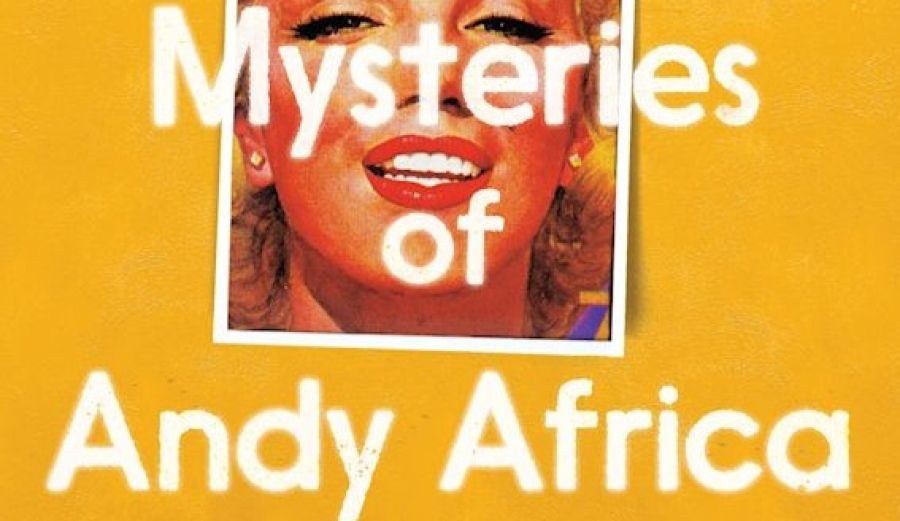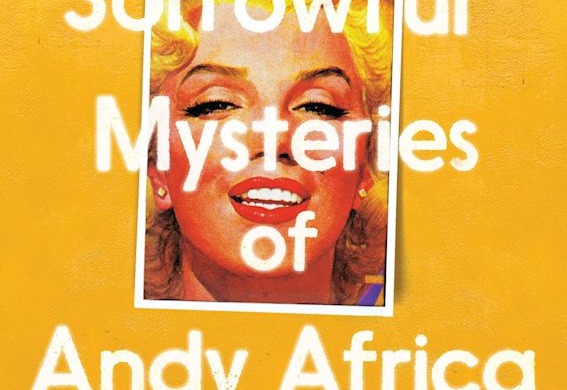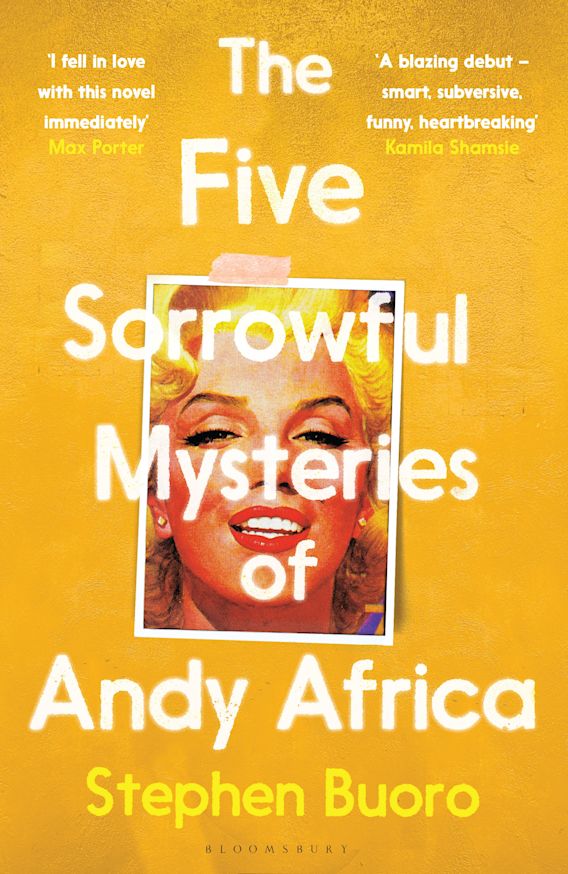
- Free Article: No
- Contents Category: Fiction
- Review Article: Yes
- Article Title: Sun-Ra-Like
- Article Subtitle: A thoughtful novel of contemporary Nigeria
- Online Only: No
- Custom Highlight Text:
'A fifteen-year-old African genius poet altar boy who loves blondes is not a criminal, not a racist, not a sell-out.’ Perhaps not unlike other fifteen-year-old males, he is prone to bouts of solipsism and radical empathy, as absorbed by superhero fantasies of escape (and retribution) as he is by the semiotics of text messaging and sneakers. He is as unique as the next genius-poet altar boy – but also as generic, an utterly predictable mix of reticence and masturbatory self-aggrandisement. This is the wager of Stephen Buoro’s engaging début, and what renders its narrator-protagonist, Andy Aziza (a genius-poet altar boy who is also, it turns out, a genius mathematician), so memorable.
- Featured Image (400px * 250px):

- Alt Tag (Featured Image): Andrew van der Vlies reviews 'The Five Sorrowful Mysteries of Andy Africa' by Stephen Buoro
- Book 1 Title: The Five Sorrowful Mysteries of Andy Africa
- Book 1 Biblio: Bloomsbury, $32.99 pb pb, 313 pp
- Book 1 Cover Small (400 x 600):

- Book 1 Cover (800 x 1200):

It was on this road, years ago, […] that Slim, Morocca, and I decided to become Africa’s first superheroes. We’d just finished the pirated DVDs of Iron Man and Captain America and The Avengers. We placed our left hands on our hearts, raised our rights to the sky. We vowed:
To kill all the corrupt leaders
To veil Africa from the sun
To feed every African kid chicken and ice cream every day
Exuberant fantasy draws from unquestioning devotion to Western entertainment but morphs into a statement of desire for someplace other than the corner of Nigeria against whose limitations the boys chafe. The superhero trope is amplified by Zahrah, who gifts Andy his superhero moniker and espouses, Sun-Ra-like, a convoluted mashup of Afrofuturism and animism she calls Anifuturism, encouraging Andy in his development of a theorem to explain ‘everything negative that has befallen Africa’: ‘Mathematically, HXVX = (Sauron + Thanos)∞= The Curse (of Africa), where ∞ is infinity.’
Buoro’s novel offers a thoughtful picture of contemporary Nigeria’s complex syncretism: Zahrah is only nominally Muslim. Andy is an altar boy who finds Marvel heroes more messianic than the version of Christ peddled at his Catholic school. He is also frequently in conversation with a dead sibling who ‘refused to be born’, a mirror shadow he calls ‘Ydna’ and from whom he became estranged (he explains): ‘Everything changed when I told Ydna that I wanted to be like Neo. Like Clark Kent, like Peter Parker. That I wanted to be different. That I wanted to be white.’
This speculative aetiology captures the challenge posed in, but also by, such syncretism: the novel seems to suggest that its catalogue of cultural products from the West should be available to fifteen-year-old boys in Nigeria, while implicitly challenging them for being blinded by the whiteness whose cultural reach they represent. ‘Why are you trying to sound like an American, eh?’ a girl in Ososo asks Morocca, ‘[b]ecause you don’t sound like one […] [t]rust me’.
Andy’s infatuation with Eileen is part of this complex investment in the inverse, which is signalled by the suggestiveness of the novel’s parts’ titles and epigraphs: the middle part, named for the third of Roman Catholicism’s Sorrowful Mysteries of the rosary, the Crowning of Thorns, is matched, as its epigraph, with the theorem that ‘The inverse of every even permutation is even … The inverse of every odd permutation is odd.’ I take this to infer there is no chance of escaping categories. There is perhaps something here of the elusive Gleam that entices characters to their moral desolation in Ayi Kwei Armah’s The Beautyful Ones Are Not Yet Born, a seminal novel of West African existentialist despair and political critique that is perhaps also a silent intertext. A longing for transformation, even transfiguration, is undercut with an anxiety about what brutality and injustice might transform one into. A favourite text shared by Eileen and Andy is Kafka’s The Metamorphosis, the opening lines of which they find they can both quote – though Eileen is also able to quote the German original, as if implying that such cultural objects may be more accessible to Europeans, who are also able always to withdraw from a difficult situation. (It is no spoiler to note that Eileen, only ever on holiday in Nigeria, does precisely this at the novel’s end.)
As the references to ‘droogs’ suggest, Buoro’s novel has another key intertext: Anthony Burgess’s A Clockwork Orange. The novel’s friends’ gangsta-rap approximates its Nadsat argot, Slim alludes to Clockwork’s Dim, and Morocca is perhaps its Pete, who likewise reforms and commits to a family of his own. But if Andy is an African reimagination of Burgess’s delinquent Alex, also aged fifteen, Buoro’s protagonist does not perpetrate violence himself but is instead subject to it. Buoro’s critique, like Burgess’s, is no less of the broad structures of political – and perhaps also cultural – authority that presume always to constrain the expectations of the adolescents whom adults seem incapable of recognising as their successors. Burgess’s published novel famously omitted a twenty-first chapter (failing to reach the age of maturity) that would have allowed for a less dystopian ending. Buoro offers us one fewer than Burgess, as the novel strands its characters in a no man’s land from which only a superhero might rescue them, a state of stasis and repetition better fit for fiction than mathematical formulation.


Comments powered by CComment